
Fungible & Not
So I had this idea a couple weeks back and I wanted to put it to paper now that I've had a bit of time to think on it. The concept of fungibility, especially within the context of crypto, is quite binary. An asset is either fungible or not. You can either trade one for another knowing that the value is perfectly mathematically equal, or you can't.
1 BTC = 1 BTC
However this line of thinking is obviously false and woefully oversimplified for ease of use. One Bitcoin does not equal one Bitcoin if there are whitelists and blacklists. If the government flags a wallet as criminal then no one is going to want to buy tokens from that wallet. If the owner of that wallet attempts to transfer the money to any regulated exchange their account will be frozen and they may have even doxed themselves with KYC.

Governments all around the world think they have the authority to govern crypto and confiscate it from any entity they deem criminal. The problem with this is that governments are corrupt to the core and make the issue even worse. When the government steals Bitcoin from a criminal, what do they do with it? They just turn around and dump the tokens, which steals from the entire legitimate community.
The government refuses to acknowledge crypto as a set of sovereign digital nations outside the bounds of any physical government. This is to be expected, as those are the basic rules of imperialism; people are not allowed to lord over themselves under any circumstances. If a community can be controlled, then it will be. Welcome to the empire, friends.
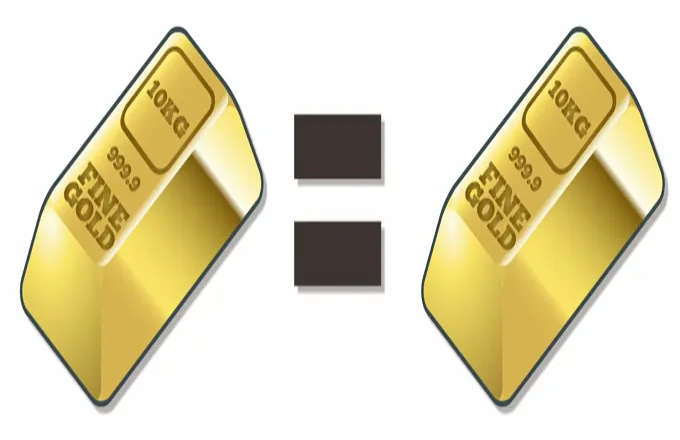
COUNTERFEIT
Even gold isn't fungible. Yes, one gold bar of 99.99% purity is equal to another gold bar of 99.99% purity, and that's exactly the kind of incentive that gives criminals the motivation to sell a lump of some other metal and call it gold. Even in the case of non-criminal activity, a 12 karat necklace is not equal to a 24 karat necklace. One is only half gold, but also the one that's only half gold has more utility because the chance of it breaking from being too soft and malleable is much lower.
Of course 12 karat gold and 24 karat gold still are technically fungible, because we can just do the math and instantly see that 24 karat gold is twice as much actual gold than the other thing and thus is twice the value. It's not subjective. But again if the gold is crafted into jewelry this very much makes it more akin to an NFT where the craftsmanship, branding, and simple opinion come into play to manipulate the market value of such things.
Privacy
I suppose it would be remiss if I didn't remind everyone here that privacy and fungibility of money go hand in hand. Whitelists and blacklists on assets are an attack on the fungibility of that asset (which are avoided when they can't be tracked). There are many keystone court cases that ruled in favor of fungibility. One of the most famous ones was a bank that tracked stolen money and demanded it back at the end of the paper-trail. The court refused to give the order because the new owner of the money was a perfectly legitimate citizen who had done nothing wrong. To force that citizen to give the bank "their" money destroys the very fabric of fungibility. Fair and square, bankers. You lose.
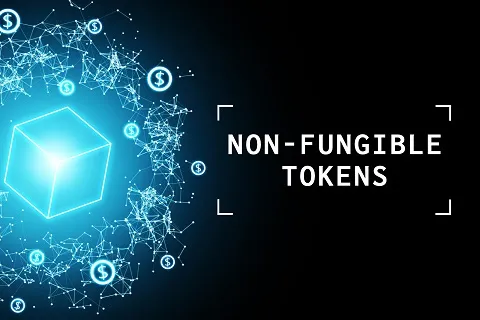
The point to all of this is that 100% fungibility is a myth. The idea of fungibility itself (just like currency) is just a human construct that only needs to be good enough for trading purposes and economic commerce. This is why all we crypto enthusiasts that confidently declare fiat currency to be worthless are totally full of shit.
Governments go to great lengths to ensure that their currencies are not being counterfeit and that the asset is fungible. There are a million different products and services built atop fiat. It is the backbone of the entire economy, and to call it worthless is foolish indeed.
Just because money is extremely corrupt and flawed absolutely does not make it worthless. In fact, ironically fiat having immense value is the exact reason why it is so corrupt and flawed in the first place. Crypto users like to have their cake and eat it to in this regard, and I'm certainly no exception. Fuck that worthless garbage, amirite?
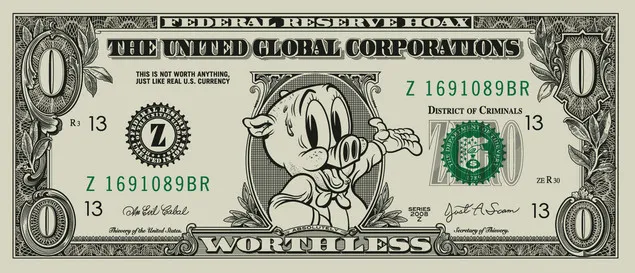
The nice thing about crypto is that it is essentially impossible to counterfeit. Even in the case of a double-spend attack no extra money actually entered circulation (only created and destroyed after it was spent). Even more importantly: counterfeiting crypto or 51% attacking the network is blatantly public and obvious. It's not possible to get away with it without the entire network noticing what just happened. Compared to fiat this kind of transparency is a huge upgrade.
It's honestly not even possible to double-spend something like Bitcoin. Say someone tries to double-spend a billion dollars. How would that even work? Who's going to give you a billion dollars worth of product in less than 30 minutes (the window in which it's possible to roll back the chain)? It becomes quite clear that this type of deception is simply not possible when dealing with large sums of money. Bitcoin is only getting bigger over time. Just ask Blackrock.

Longest intro ever.
So yeah this post is about an idea I had about the whole fungibility situation. Rather than pretend like these assets are 100% fungible I'm leaning into the other direction. How could we make an asset fungible and not-fungible at the same time on purpose? I believe this could be a very valid usecase in the gaming industry.
This might require some context.
Let's say you're playing an MMORPG where you need cloth to make armor. Typically game developers will create several types of cloth to make sure the economy can not be gamed. Something like WOW has:
- Linen
- Wool
- Silk
- Mageweave
- Runecloth
- Netherweave
- Mooncloth (clearly the best cloth)
- ETC.
Why not just make one generic cloth?
Back in olden days that's how it would have worked. There'd only be one type of cloth and low level gear would require very little of it while high level gear would require quite a bit. The problem with doing it this way is that bots (or just players) can farm and grind low level zones and still get the best gear, which obviously shouldn't be allowed. The incentives have to align so that actually playing the game legitimately is the thing that gets rewarded. This is shockingly much much easier said than done.
This is why I laugh when crypto developers make games and act as though they can stop cheaters using trivial mechanics (like CAPTCHA). Gamers have been cheating since the beginning of gaming. More importantly: they do it for ZERO financial incentive. People cheat just because they can. Adding crypto to the mix and creating an actual financial incentive to cheat is that on steroids, and yet crypto devs seem to be completely blind to this fact. They'll figure it out eventually.
Muh idea:
Generic items can be used as crafting materials while at the same time avoiding the attack vectors described above. The solution involves making assets both fungible and not-fungible, which requires a bit more explanation.
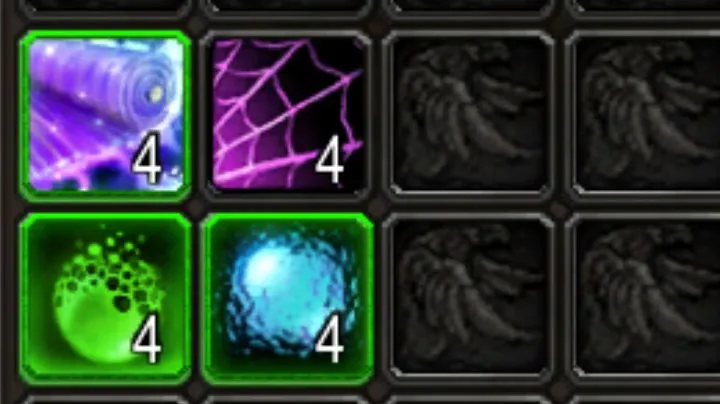
Example:
Let's say you're a leatherworker and you need 12 pieces of leather to create a piece of gear for your level. If each piece of leather has a quality score (say 1%-100%) then it becomes a fungible asset but on a sliding scale. One piece of leather with 30% quality would be equivalent to another of the same quality, but not to a piece with 40% quality.
So what does a higher quality get you?
Maybe using 30% leather gets you +3 dexterity but 40% gives you +4. Or perhaps it's even a lot more random than that and higher quality simply gives one the chance of better rolls but doesn't guarantee it.
It's important to note here that the quality ratings are not linear. It's not like 12 karat gold being half as valuable as 24. The supply and demand of the quality would be completely determined by what players in the game are looking for at the time.
Ultimately the point is that items with a quality score are both fungible and not fungible. You'd be able to use varying qualities of leather on the same piece of gear. If you needed 12 pieces of leather to make an item you could use 12 pieces that all had a different quality rating; all that would matter is the percentage after they are added up. 12 pieces at 30% each is a score of 360% total. This final score would then be used to determine the range on the affix rolls for stat points.
So in the context of actually creating an item all the generic materials would be completely fungible. Nothing stops a player from using any range of quality on the item they want to produce. However, materials of varying quality themselves would be more or less non-fungible on something like the auction house. You'd have to search for a range (like 30%-35%) and then buy the cheapest available in that range. Given enough volume there'd be plenty for sale at the exact quality score one was looking for (say 32%) and no range would be needed.
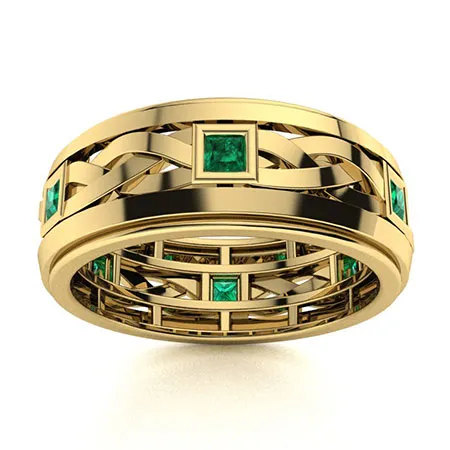
Purity Score
Another concept that's been rattling around my head is the idea that all these blockchain games will be open and public. Every item and player in the game will have an immutable history. Within the context of what we were just talking about this means that we could use a block explorer to figure out not only the player who farmed the leather used to make the armor, but also replay the exact fights and RNG employed to generate them. Compare this to closed systems and private companies and it's a complete reversal of what we've seen before. Everything will be transparent.
So my idea for giving an item a purity score (which is probably a bad name for it because it's too ambiguous) could be an interesting development as well. For example: an item that was 100% farmed by a single player would have 100% purity score. If you're a leatherworker and you farm all the leather yourself and a 'mystic essence' to add an enchantment plus a gemstone for extra power... the item has 100% purity and was 100% created by a single entity.
However if the player jumps on the auction house and buys several of the materials they need to make an item then the purity score goes down. If the materials for the item were farmed by a dozen different people then the purity score would be quite low.
Or perhaps players would have reputation scores that factor into it as well. An account that's been accused of botting or exploiting farm mechanics might have a very low reputation within the network and the items they farm or create may be subject to low 'reputation' (purity) as well. This creates a sliding scale of rep for items that may or may not be "legitimate", with the most common example of a "duped" item being 0% legit. Luckily it would be nearly impossible to dupe items on a blockchain because blockchains are quite good at eliminating the double-spend mechanic all by themselves intrinsically. Classifying products with reputation on a sliding scale is the natural evolution to combat exploits, but fragmentation and loss of fungibility may be an unintended consequence in the fight against counterfeit assets.

Conclusion
Fungibility is a very weird concept. At the end of the day it's just like money itself: a human construct. In fact fungibility is the backbone of currency. Money couldn't be money without it. However there are many threats to fungibility including (but not limited to) issues of privacy, blacklists, counterfeiting, and branding.
Within the context of blockchain gaming, I believe we will begin to see a mix of products that are fungible and non-fungible depending on the context being presented. At the end of the day these are much more fluid issues on a spectrum rather than the binary true/false ideology we normally use to classify them.